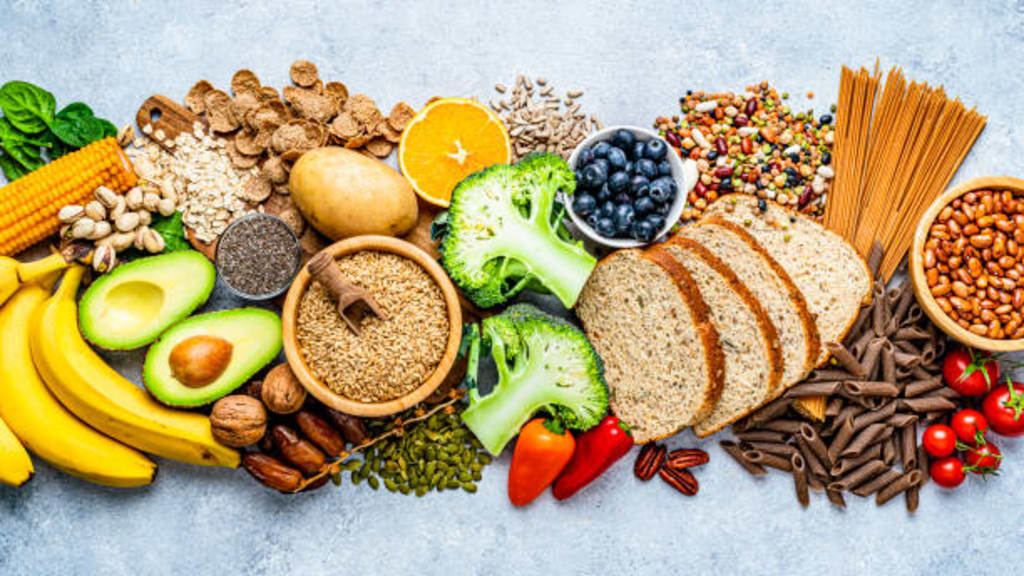
Outline
Introduction
Importance of diet in fat loss
Overwhelm with new diets
All diets work by creating a caloric deficit
Finding the diet you enjoy the most
Factors to consider for optimizing your diet for fat loss
Total calorie intake and moderate caloric deficit
Protein intake for muscle maintenance
Carbohydrate and fat intake
Setting up a diet for fat loss
Calculating calorie intake
Recommended protein intake
Adjusting carbs and fats based on preferences
Importance of unprocessed foods
A typical day of eating for fat loss
Breakfast smoothie and rice cakes
Post-workout meal with sweet potato, chicken, and salad
Fruits, vegetables, black coffee, and green tea throughout the day
Sushi as a low-calorie, high-protein choice
Bedtime meal with eggs, toast, peanut butter, and salad
Importance of tracking calories for accurate intake
Measuring calorie-dense foods like peanut butter
Conclusion
Find a diet you enjoy and can adhere to
Supplements for fat loss
When It Comes to Fat Loss, Your Diet Matters
When it comes to fat loss, there's no doubt that your diet is the most important factor that you have to get right. Even if your training is on point and consistent, you're simply not going to see the results you want without a proper nutrition strategy. But this is where most people fail, and I honestly don't blame them. We're constantly overwhelmed with new diets that are supposedly the new best way to lose fat. So it becomes extremely difficult to know which approach to take.
But the real truth is that every single diet or dieting method out there works the exact same way. They all achieve fat loss by causing you to eat at a caloric deficit, meaning that you're eating fewer calories than you're burning every day. Research has proven time and time again that whether it's keto, intermittent fasting, or any other popular diet, although these diets may each have certain psychological and physiological benefits, none of them have any special fat loss effect. They instead work by making it easier for you to eat fewer calories, simply meaning that the best diet for fat loss is really the one that you personally enjoy the most and will be most consistent with.
However, regardless of what approach you choose, there are a few factors that you need to get right in order to optimize your diet for fat loss. These factors mainly revolve around how many total calories, protein, carbs, and fats you are consuming on a daily basis.
Factors to Consider for Optimizing Your Diet for Fat Loss
To optimize your diet for fat loss, you need to pay attention to the following factors:
Total Calorie Intake: If you want to maximize fat loss while minimizing muscle loss, you have to pay close attention to how many calories you're consuming. Research indicates that this is best done with a moderate caloric deficit that enables you to lose around 0.7 percent of your body weight per week, which is around 1 pound of weight loss per week for most people. In fact, a more aggressive calorie deficit was shown to hinder fat loss as opposed to accelerating it.
Protein Intake: The Key to Maintaining Muscle
When it comes to optimizing your diet for fat loss, one of the most important factors to consider is your protein intake. Research has consistently shown that protein plays a crucial role in maintaining muscle mass while you're in a caloric deficit. While the exact amount of protein you should consume may be a topic of debate, a recent meta-analysis from the Journal of Sports Medicine suggests that consuming at least 0.73 grams of protein per pound of body weight is sufficient to maximize muscle growth and maintenance.
However, I personally find that consuming slightly more protein than the recommended amount can be beneficial, especially when restricting calories. Protein is known to be the most satiating macronutrient, meaning it helps keep you feeling full throughout the day. Additionally, it acts as a buffer to minimize potential muscle loss during a calorie deficit.
Balancing Carbohydrates and Fats
Another important aspect of optimizing your diet for fat loss is finding the right balance between carbohydrates and fats. There has been an ongoing debate between low-fat and low-carb diets, but a year-long randomized clinical trial with over 600 subjects, published in 2018, found that both low-fat and low-carb diets are equally effective for fat loss when protein intake is the same.
In reality, the distribution of carbohydrates and fats in your diet can be adjusted based on your personal preferences. However, it is generally recommended to consume around 0.25 to 0.5 grams of healthy fats per pound of body weight, with the rest of your calories coming from carbohydrates. It is worth noting that some research suggests females might benefit from sticking to the higher end of the recommended fat range.
Setting Caloric Goals for Optimal Fat Loss
Alongside protein, carbohydrates, and fats, your overall caloric intake is a crucial factor in maximizing fat loss while minimizing muscle loss. Research indicates that a moderate caloric deficit is best for sustainable and effective fat loss. Aim to lose around 0.7 percent of your body weight per week, which is equivalent to approximately 1 pound of weight loss per week for most individuals.
If you're unsure about your specific calorie needs, a good starting point is to multiply your body weight by 13, as recommended in a 2014 paper by Eric Helms and colleagues. However, keep in mind that this calculation might not be accurate for everyone. Adjust your calorie intake based on your weight loss progress over time.
Optimizing Your Diet: A Personalized Approach
Now that you understand the basics of setting up and optimizing your diet for fat loss, it's essential to find an approach that suits you personally. The best diet for fat loss is the one that you enjoy the most and can be consistent with in the long term. Incorporating foods you genuinely like and finding a balance that works for your lifestyle and preferences is key.
To provide you with a practical example, let's take a look at what a typical day of eating for fat loss might look like for me. Keep in mind that this is just one example, and it's essential to customize your own diet based on your unique needs and preferences.
A Day of Eating for Fat Loss
Meal 1: Breakfast
Smoothie with fruits, flaxseed, cashew milk, and whey isolate protein
Rice cakes and half a banana
Meal 2: Post-Workout
Baked sweet potato, baked chicken breasts, and a large salad with low-calorie dressing
Throughout the day:
Additional servings of fruits and vegetables
Black coffee and green tea for their appetite-suppressing and calorie-burning properties
Meal 3: Lunch
Sushi with salmon for its omega-3 fatty acids and high protein content
Meal 4: Afternoon Snack
Greek yogurt with mixed berries and a sprinkle of granola for added texture
Meal 5: Dinner
Grilled lean steak or tofu for a good source of protein
Roasted vegetables, such as broccoli, bell peppers, and zucchini
Quinoa or brown rice as a healthy carbohydrate source
Meal 6: Evening Snack
Cottage cheese with sliced cucumber or carrot sticks for a low-calorie, protein-rich snack
Hydration:
Throughout the day, stay well-hydrated by drinking plenty of water. You can infuse it with lemon, cucumber, or mint for added flavor.
Remember, this is just an example, and you should tailor your meals according to your taste preferences, dietary restrictions, and caloric needs. It's important to focus on consuming whole, nutrient-dense foods while maintaining an appropriate calorie deficit for sustainable fat loss.
Additionally, incorporating regular exercise, such as strength training and cardiovascular activities, can further support your fat loss goals by increasing calorie expenditure and preserving muscle mass.
It's always recommended to consult with a registered dietitian or nutritionist who can provide personalized guidance based on your specific needs and goals. They can help you create a well-rounded and balanced meal plan that suits your preferences while optimizing fat loss.
Supplements:
While a well-rounded diet should provide most of the nutrients you need, some individuals may choose to complement their fat loss journey with certain supplements. However, it's important to note that supplements should never replace a healthy diet and lifestyle. Here are a few supplements that are commonly used during fat loss phases:
Omega-3 Fatty Acids: These essential fatty acids, found in fish oil or algae-based supplements, offer various health benefits, including reducing inflammation, supporting heart health, and potentially aiding fat loss.
Vitamin D: Adequate vitamin D levels are crucial for overall health, including bone health, immune function, and potentially regulating body weight. Consider getting your levels tested and consulting with a healthcare professional to determine if supplementation is necessary.
Green Tea Extract: Green tea contains compounds like catechins and caffeine, which have been shown to increase metabolism and fat oxidation. Green tea extract supplements can provide a concentrated dose of these beneficial compounds.
Fiber Supplements: Fiber is essential for promoting satiety, regulating digestion, and supporting overall gut health. While it's best to obtain fiber from whole foods, some individuals may benefit from fiber supplements, such as psyllium husk or glucomannan, to help meet their daily intake.
Conclusion:
When it comes to fat loss, the key is finding a sustainable and enjoyable approach that aligns with your personal preferences and goals. Remember that every individual is unique, and what works for one person may not work for another. It's crucial to focus on creating a calorie deficit, consuming adequate protein, and incorporating whole, nutrient-dense foods into your diet.
Alongside a well-planned nutrition strategy, regular physical activity, sufficient sleep, and stress management are essential components of a healthy lifestyle and successful fat loss journey.
FAQs (Frequently Asked Questions):
Can I eat carbs while trying to lose fat ?
Yes, carbohydrates can be part of a balanced diet during fat loss. It's important to choose complex carbohydrates from sources like whole grains, fruits, and vegetables, while being mindful of portion sizes and overall calorie intake.
How long does it take to see results with a fat loss diet ?
The rate at which you see results may vary depending on several factors, including your starting point, adherence to the diet, exercise routine, and individual metabolism. Consistency and patience are key, and it's important to focus on sustainable, long-term progress rather than quick fixes.
Can I have cheat meals while on a fat loss diet ?
Incorporating occasional indulgences can help with adherence and satisfaction. However, it's essential to strike a balance and ensure that cheat meals do not derail your overall progress. Moderation and mindful eating are crucial.
Should I track my calories and macros ?
Tracking calories and macronutrients can be a useful tool for understanding your intake and ensuring you're on track with your fat loss goals. It provides awareness and helps with accountability. However, it's not necessary for everyone and may not be suitable for those with a history of disordered eating.
How do I stay motivated during a fat loss journey ?
Motivation can vary, but setting realistic goals, finding a support system, tracking progress, and focusing on non-scale victories (such as increased energy or improved mood) can help keep you motivated. Remember to celebrate small milestones along the way.
Remember, it's important to consult with a healthcare professional or registered dietitian before making any significant changes to your diet or starting a fat loss journey. They can provide personalized guidance and address any specific concerns you may have.





Comments (1)
great